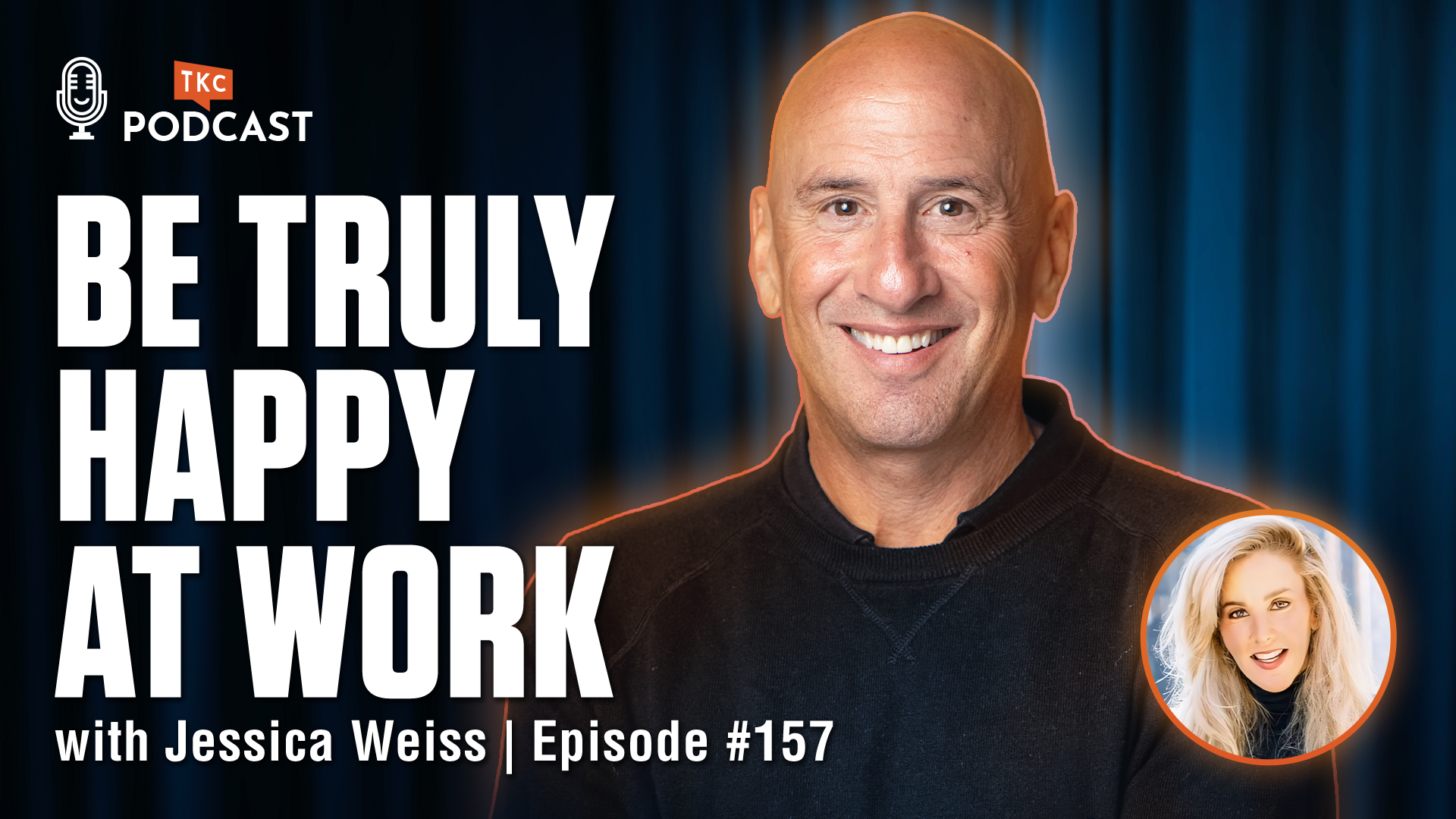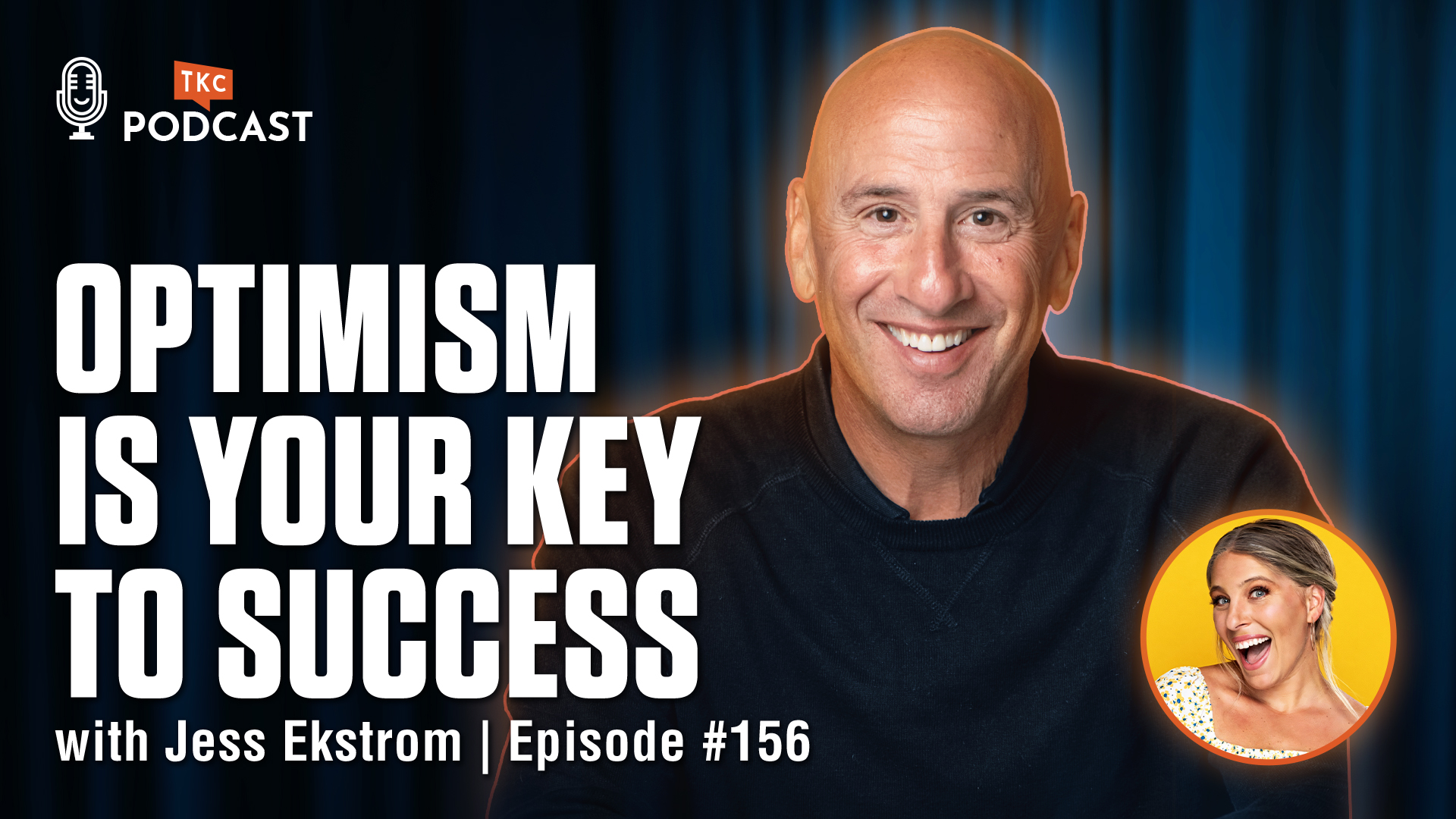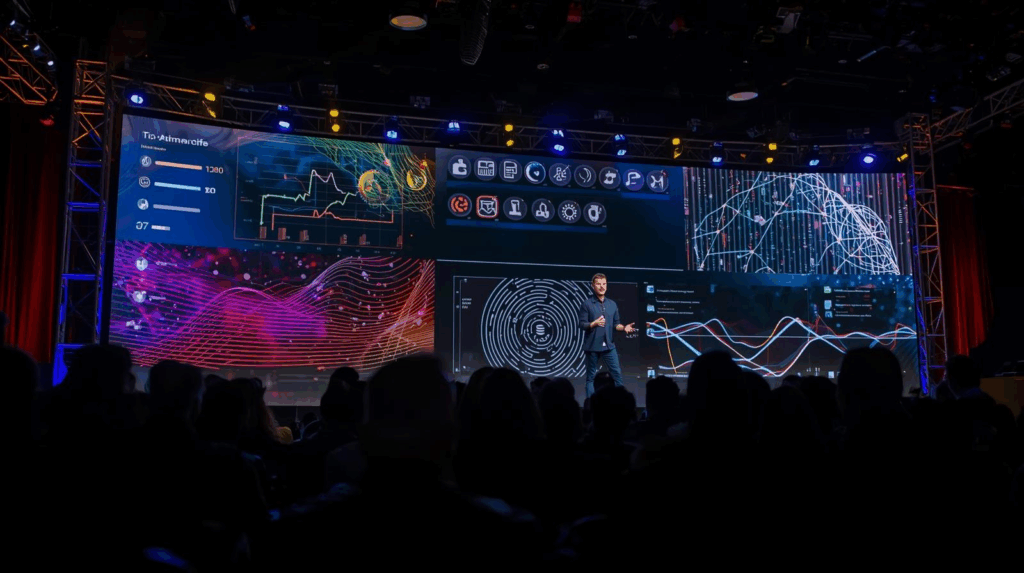
August 22, 2025Negotiation Questions Every Event Professional Should Ask Before Walking Into Any Deal
Master negotiation questions with keynote speaker Alexandra Carter that transform anxiety into confidence whenever you're seeking better deals.
Picture this: You’re about to walk into a high-stakes negotiation with a vendor who holds the key to your event’s success. Your palms are sweaty, your mind is racing with worst-case scenarios, and that familiar knot in your stomach tells you everything you need to know—you’re terrified. Sound familiar? If you’re nodding along, you’re not alone in this struggle.
Here’s what most event professionals don’t realize: the difference between negotiation anxiety and negotiation confidence isn’t talent, experience, or even preparation. It’s asking yourself the right questions before you ever sit down at that table. When you know what to ask yourself first, everything else falls into place naturally.
We’ll explore the game-changing negotiation questions that negotiation keynote speaker Alexandra Carter teaches to transform pre-negotiation jitters into unshakeable confidence. You’ll discover why your past wins hold more power than you realize, learn specific questions that prime your brain for success, and walk away with a practical technique you can use before your very next vendor meeting.
? Watch and listen to the full interview about negotiation strategies here
The Hidden Psychology Behind Pre-Negotiation Anxiety
Let’s get real about what happens in your head before a big negotiation. Your brain doesn’t distinguish between a saber-tooth tiger and a challenging conversation with a difficult vendor—both trigger the same fight-or-flight response that’s kept humans alive for thousands of years. But here’s where it gets interesting: this ancient survival mechanism that once protected our ancestors now sabotages our professional development in modern conference rooms.
Most meeting professionals approach negotiations thinking they need to become someone else—tougher, more aggressive, or ruthlessly strategic. But negotiation keynote speaker Alexandra Carter, Clinical Professor at Columbia Law School and Wall Street Journal bestselling author, challenges this entire mindset. Through her work training everyone from UN diplomats to Fortune 500 executives, she’s discovered something remarkable: your greatest negotiation strength isn’t learning new tactics—it’s remembering what you already know how to do.
“Before negotiating, ask: ‘How have I handled this successfully before?’ Write it down. It’s a positive power prime—data proving why you’re a great negotiator,” Alexandra explains. This isn’t just feel-good advice—it’s neuroscience in action. When you consciously recall past successes, you’re literally rewiring your brain’s response to the upcoming challenge.
Think about the last time you successfully navigated a tricky situation. Maybe you convinced a reluctant speaker to adjust their presentation format, or you managed to secure additional services from a venue without increasing your budget. In that moment, you weren’t pretending to be someone else—you were authentically you, drawing on your natural strengths of listening, problem-solving, and finding creative solutions.
The anxiety you feel before negotiations often stems from forgetting this fundamental truth: you’ve been negotiating successfully your entire career. Every time you’ve managed stakeholder expectations, resolved vendor conflicts, or found win-win solutions under pressure, you’ve been honing your communication and negotiation skills without even realizing it.

Your Past Wins Are Your Secret Negotiation Weapon
Here’s something that might surprise you: the database of your negotiation successes is already stored in your memory, just waiting to be accessed. Alexandra’s research with thousands of negotiators reveals that most people dramatically underestimate their own track record of successful outcomes. We tend to remember our failures in vivid detail while our wins fade into the background noise of “just doing our job.”
But what if you could flip this script? What if, instead of mentally rehearsing everything that could go wrong, you spent those pre-negotiation moments remembering everything you’ve done right?
This is where the magic of the “positive power prime” comes into play. When you deliberately recall a specific situation where you successfully handled something similar, several powerful things happen in your brain. First, you activate neural pathways associated with confidence and competence. Second, you remind yourself of the specific skills and strategies that worked before. Most importantly, you shift from a threat-focused mindset to an opportunity-focused one.
Let me paint you a picture of how this works in real life. Sarah, an association meeting planner, was dreading a contract renegotiation with a venue that had significantly raised their prices mid-planning cycle. Instead of spiraling into worst-case scenarios, she took Alexandra’s advice and spent five minutes writing about a time she’d successfully navigated a similar challenge.
She remembered the previous year when a keynote speaker had demanded last-minute changes that seemed impossible to accommodate. Rather than panicking, Sarah had listened carefully to understand the speaker’s real concerns, brainstormed creative alternatives, and found a solution that actually improved the overall program flow. Writing down this experience reminded her that she was naturally good at finding unexpected solutions under pressure—exactly the skill she needed for the venue negotiation.
The key insight Alexandra shares is this: “Your past successes reveal your strengths. Maybe you’re an introvert who cools down heated rooms. Use that.” Too often, we think negotiation requires us to become more extroverted, more assertive, or more confrontational. But some of the most effective negotiators are quiet listeners who ask thoughtful questions and create space for collaborative problem-solving.
Your unique combination of empowerment skills, emotional intelligence, and industry expertise isn’t a limitation to overcome—it’s your competitive advantage to leverage. The question isn’t whether you’re good enough to negotiate successfully; it’s whether you’re willing to remember and trust what you already know how to do.
The Power Prime Technique That Changes Everything
Ready to transform your pre-negotiation ritual? Alexandra’s “Power Prime” technique is beautifully simple yet scientifically powerful. Instead of complex preparation strategies that overwhelm your already busy schedule, this approach takes just minutes but creates lasting confidence shifts.
Here’s how to implement the Power Prime in three straightforward steps:
Step One: Recall a Related Success Set a timer for two minutes and think of a time you successfully handled something similar to your upcoming negotiation. Don’t overthink this—it doesn’t need to be a perfect match. If you’re negotiating with a vendor, remember when you successfully worked through any kind of professional challenge or conflict. If you’re asking for a budget increase, recall when you convinced someone to say yes to something important.
The key is specificity. Instead of thinking “I’m generally good with people,” identify an exact situation. Maybe it was the time you convinced a hesitant board member to approve your innovative session format, or when you successfully mediated between two speakers who had conflicting technical requirements. The more detailed your memory, the more powerful the prime.
Step Two: Journal the Details Write down what actually happened in that success story. Don’t just note the outcome—capture your process. What questions did you ask? How did you listen? What creative solutions did you propose? How did you handle objections or pushback? Most importantly, how did you feel during the successful moments?
This writing process serves multiple purposes. It forces you to slow down and really analyze what worked, it activates positive emotional memories associated with competence and success, and it creates a tangible reference you can return to whenever you need a confidence boost.
Many meeting professionals discover surprising patterns in their success stories. Maybe you’re particularly skilled at asking questions that help others feel heard. Perhaps you excel at finding creative compromises that address everyone’s underlying needs. Or you might realize that your calm demeanor naturally de-escalates tense situations—a superpower in any negotiation context.
Step Three: Review Before You Start Just before your negotiation begins, reread what you wrote. This isn’t about memorizing tactics or trying to recreate the exact same approach. It’s about reminding your nervous system that you’ve been here before and you know how to navigate successfully.
This final step activates what psychologists call “embodied confidence”—you literally feel different in your body when you remember what you’re capable of. Your posture straightens, your breathing deepens, and that anxious energy transforms into focused determination.
The beauty of this technique is its universality. Whether you’re a seasoned professional preparing for a major contract negotiation or a newer planner about to have your first difficult vendor conversation, the Power Prime works because it’s based on your authentic experiences, not someone else’s strategies.
Why Introverts Actually Excel at Strategic Negotiations
Let’s address the elephant in the room that many event professionals quietly struggle with: the misconception that successful negotiation requires an aggressive, extroverted personality. If you’re someone who prefers thoughtful conversation to heated debate, or if you’d rather listen than dominate the discussion, you might think you’re at a disadvantage. Alexandra’s research suggests exactly the opposite.
“Your past successes reveal your strengths. Maybe you’re an introvert who cools down heated rooms. Use that,” she reminds us. This insight challenges everything our culture tells us about leadership and influence. We’re bombarded with images of successful negotiators as forceful, fast-talking power players who never show weakness or uncertainty.
But here’s what actually happens in real-world negotiations: the person who asks the best questions, listens most carefully, and creates genuine connection usually walks away with the better outcome. These are naturally introverted strengths that become superpowers in the right context.
Think about your most successful vendor relationships. Did they develop because you steamrolled the other party into submission? Probably not. More likely, they grew from your ability to understand their real challenges, find creative solutions that worked for both parties, and build trust through consistent, thoughtful communication.
This reframe is particularly powerful for meeting professionals because so much of our work involves collaborative problem-solving rather than adversarial competition. When you’re working with a caterer to adjust the menu for dietary restrictions, you’re not trying to defeat them—you’re trying to find solutions that serve your attendees while respecting their operational constraints. When you’re discussing AV requirements with a venue, the goal isn’t to win at their expense but to create an environment where your content can shine.
Introverted negotiators often excel at what Alexandra calls “diagnostic questions”—the kind of thoughtful inquiries that uncover the real issues beneath surface-level positions. Instead of immediately proposing solutions, they invest time in truly understanding what everyone needs. This approach not only leads to better outcomes but also builds the kind of collaborative relationships that serve you throughout your career.
The next time you catch yourself wishing you were more naturally assertive or aggressive, remember this: your thoughtful, analytical approach isn’t something to overcome—it’s your secret weapon to leverage. The meeting industry needs negotiators who can build bridges, not just win battles.
Practical Questions That Unlock Negotiation Confidence
Now that you understand the psychology behind pre-negotiation anxiety and the power of priming with past successes, let’s get tactical. These are the specific questions Alexandra recommends asking yourself before any important negotiation, along with real-world applications for meeting professionals.
“How have I handled something like this successfully before?” This is your foundation question—the one that starts the power prime process. For event planners, this might connect your upcoming venue negotiation to that time you successfully reworked a speaker contract, or link a budget conversation to when you convinced leadership to invest in a new technology platform.
The magic isn’t in finding identical situations but in recognizing transferable skills. Maybe your success story involves managing a crisis during a live event. The negotiation skills you used there—staying calm under pressure, asking clarifying questions, finding creative solutions quickly—are exactly what you need in a contract discussion.
“What strengths did I rely on in that situation?” Once you’ve identified a relevant success story, dig deeper into your specific superpowers. Did you succeed because you asked questions that others hadn’t thought of? Did your ability to see everyone’s perspective help you find an unexpected compromise? Were you able to stay patient and positive when others became reactive?
Understanding your specific strengths helps you plan how to use them strategically. If you’re naturally good at asking questions that help people feel heard, you might open your next vendor negotiation by really understanding their challenges before proposing solutions. If you excel at creative problem-solving, you might come prepared with multiple options rather than a single take-it-or-leave-it proposal.
“What questions helped me understand the real issues?” Great negotiators are great diagnosticians—they understand that the first thing someone asks for is rarely what they actually need most. Reflecting on your past successes, what questions helped you get to the heart of the matter?
Maybe you learned to ask, “What would make this arrangement work better for your team?” instead of just “Can you do this for less money?” Perhaps you discovered that “What’s your biggest concern about this approach?” opens doors that direct pushback closes. These diagnostic questions become your toolkit for future negotiations.
“How did I make the other person feel heard and valued?” This question is particularly important for building long-term relationships in the meeting industry. Your success probably didn’t come from making others feel defeated—it came from making them feel understood. What specific behaviors helped create that connection?
Did you paraphrase their concerns back to them? Did you acknowledge the validity of their constraints before proposing alternatives? Did you express genuine appreciation for their expertise or flexibility? These relationship-building behaviors are often the difference between a one-time transaction and a lasting partnership.
“What would I tell a colleague who was facing this same challenge?” Sometimes we give others better advice than we give ourselves. If a peer came to you worried about an upcoming negotiation, what encouragement and practical suggestions would you offer? Often, the wisdom we readily share with others reveals insights about our own capabilities that we struggle to see directly.
This question also helps you access your more objective, supportive inner voice rather than the critical one that tends to dominate pre-negotiation anxiety. You’d probably remind a colleague of their past successes, encourage them to trust their instincts, and suggest they focus on mutual problem-solving rather than winning or losing.
Building Long-Term Negotiation Skills Through Self-Reflection
The Power Prime technique isn’t just about managing pre-negotiation nerves—it’s about developing a deeper understanding of your authentic negotiation style and continuously improving your skills. Each successful negotiation becomes data for future confidence building, but only if you take time to reflect on what worked and why.
After every significant negotiation, whether it’s a major contract discussion or a smaller vendor conversation, spend a few minutes journaling about the experience. What went well? Which of your natural strengths proved most valuable? What questions opened up new possibilities? How did you handle moments of tension or disagreement?
This isn’t about critiquing your performance or dwelling on what you could have done differently. It’s about building a personal database of proven strategies and approaches that you can draw on in future situations. Over time, you’ll start to see patterns in your successes that reveal your unique negotiation superpowers.
Many meeting professionals discover that their best negotiations happen when they stop trying to be someone else and start leveraging their authentic strengths. Maybe you’re naturally curious, which makes you great at asking the kinds of questions that uncover win-win solutions. Perhaps you’re highly organized, which helps you prepare thoroughly and think through multiple scenarios. Or you might be naturally empathetic, giving you an advantage in reading room dynamics and finding approaches that work for everyone.
The personal development aspect of this work extends beyond individual negotiations to transform how you approach your entire career. When you start seeing yourself as someone who already knows how to navigate complex conversations successfully, you become more willing to take on challenging projects, advocate for your ideas, and pursue opportunities that require strong communication skills.
This confidence shift is particularly important for women leaders in the meeting industry, who often face additional pressures to prove their worth while managing others’ perceptions of assertiveness and likability. Alexandra’s approach removes these external pressures by focusing on your actual track record of success rather than cultural expectations of how negotiators should behave.
Transforming Negotiation Anxiety Into Professional Confidence
The journey from negotiation anxiety to confidence isn’t about becoming a different person—it’s about remembering who you already are at your best. Through Alexandra’s Power Prime technique and strategic self-questioning, you can transform those pre-negotiation jitters from a liability into an asset.
Remember Sarah, the association planner we met earlier? After implementing the Power Prime technique before her venue renegotiation, she didn’t just secure better terms—she completely changed her relationship with challenging conversations. Instead of seeing negotiations as battles to be won or lost, she began approaching them as collaborative problem-solving sessions where her natural strengths could shine.
The venue renegotiation that had seemed so threatening became an opportunity to demonstrate her value as a thoughtful, solution-oriented partner. By taking time to remember her past successes and identify the specific skills that had worked before, she walked into that meeting with genuine confidence rather than manufactured bravado.
Six months later, Sarah reported that the Power Prime had become her go-to preparation technique not just for negotiations but for any challenging professional conversation. Board presentations, difficult vendor meetings, budget discussions with leadership—all of these previously stressful situations became opportunities to leverage her authentic strengths and create positive outcomes.
This transformation is available to any meeting professional willing to shift their focus from what they lack to what they already possess. Your years of experience managing complex events, navigating stakeholder relationships, and solving problems under pressure have already equipped you with sophisticated business and negotiation skills. The question isn’t whether you’re capable of negotiating successfully—it’s whether you’re willing to trust what you’ve already proven you can do.
The next time you feel that familiar anxiety before an important negotiation, remember Alexandra’s wisdom: you’re not preparing to become someone else—you’re preparing to be your most effective, confident self. Your past successes aren’t just encouraging memories—they’re proof of concept for your ability to handle whatever challenges come next.
Taking Action and Building Your Negotiation Confidence Today
You now have the tools to transform pre-negotiation anxiety into genuine confidence, but knowledge without action remains just interesting theory. The Power Prime technique works because it’s simple enough to implement immediately yet powerful enough to create lasting change in how you approach challenging conversations.
Start small with your next vendor conversation or team meeting. Before you walk in, take two minutes to remember a time you successfully navigated something similar. Write down what worked, identify the specific strengths you used, and remind yourself that you’ve been here before—and you know how to succeed.
As you build this practice, you’ll discover something remarkable: negotiation confidence isn’t about never feeling nervous. It’s about feeling nervous and moving forward anyway, armed with the knowledge of your own capabilities and a clear sense of what success looks like for everyone involved.
The meeting industry needs professionals who can build collaborative relationships, find creative solutions to complex challenges, and navigate difficult conversations with grace and authenticity. These aren’t skills you need to develop someday—they’re abilities you’ve been honing throughout your career. The Power Prime technique simply helps you remember and access them when you need them most.
Your next negotiation isn’t just an opportunity to secure better terms or resolve a challenging situation—it’s a chance to prove to yourself, once again, that you already possess everything you need to succeed. The questions are simple, the technique is straightforward, and your track record of success is already established. All that remains is trusting what you know and stepping confidently into your next opportunity.
Ready to transform your approach to challenging negotiations?
Schedule time with negotiation keynote speaker Alexandra Carter to bring these confidence-building techniques to your next event, book a 15-minute prep call to discuss how negotiation training could benefit your team, or reach out directly to explore bringing inspirational & motivational negotiation content to your upcoming conference.
Your future confident self is waiting—and they already know exactly what to do.
Tags: negotiation
Discover More Insights
Get in TouchContact US
Fill out the form so we can best understand your needs.
A representative from The Keynote Curators will reach out to you.








